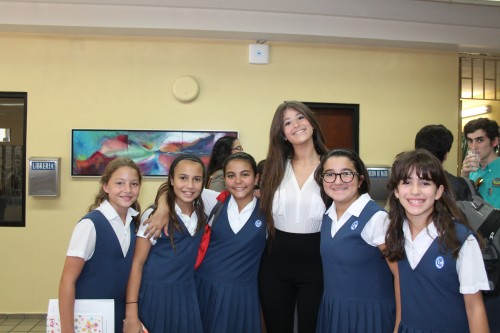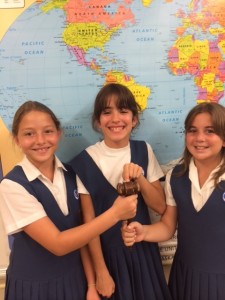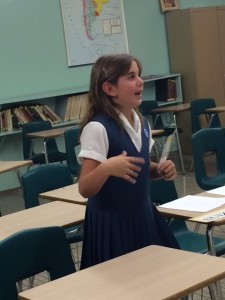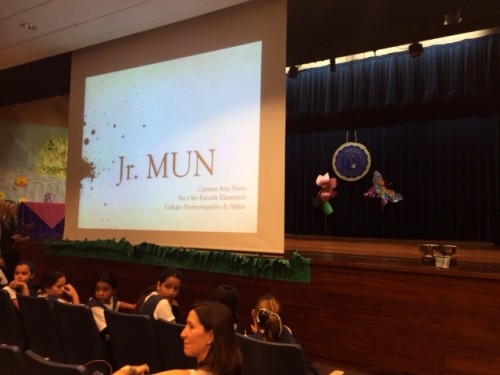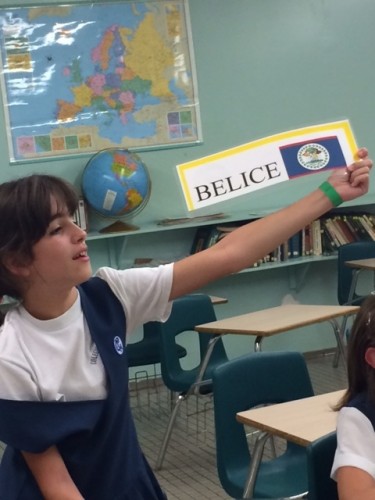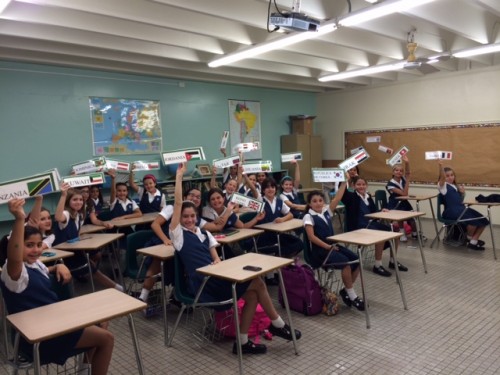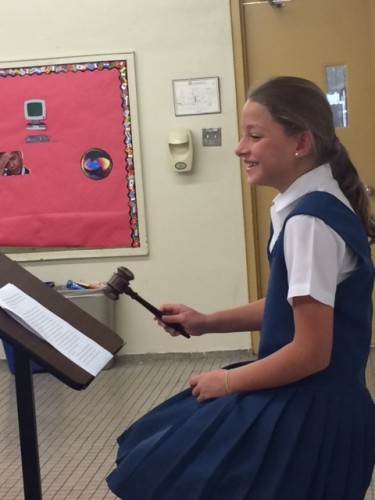Based on my own experience, I think that it is never too early to get involved in Model United Nations (“MUN”). In most schools, MUN is an extracurricular activity in which only high school students are allowed to participate. My school, the Colegio Puertorriqueño de Niñas (“CPN”) in Guaynabo, Puerto Rico, currently allows participation from middle and high school students (7th-12th grade).
Although it is great that middle school students are allowed to participate, I think that younger students should also be given the opportunity to participate in this extraordinary club. This realization led me to develop a new project that would allow the participation of at least some elementary school students in the Puerto Rico MUN local circuit.
MUN promotes a series of skills that, with proper teaching and guidance, can be learned at any age. This activity exposes participants to current events and global political and economic issues that young students would probably not understand or care for until much later in their lives.
Through their involvement in MUN, students have to learn how to research and understand the international conflicts in which the real United Nations are involved, in order to promote peace and stability. In preparing for MUN conferences, students are not only developing public speaking and debate skills, but are also learning history, geography, politics and economics, sometimes with a greater level of detail and complexity than what they study in any of their school courses. In addition, they are forced to be creative and come up with solutions to the real life problems that most countries are currently facing.
Even though most people recognize the capabilities and the potential of young students, organized school activities tend to limit their participation until they are much older. As a result, these students either turn to other activities or get frustrated and become indifferent. Recognizing their potential is not enough. We have to reach out to them, to show them how exciting it is to understand what is happening in the world, and give them the opportunity to participate in debates and discussions of current events as delegates of different countries.
Because of their young age, elementary school students are usually more open minded to consider and accept diverse opinions, which is something very important for the resolution of international conflicts.
One of the main reasons why I began to develop the Jr. MUN for elementary school students is the realization of how important the skills I have acquired through MUN have been for my academic and social life. I joined my school’s MUN club in the 8th grade, and now, four years later, I only wished I could have started earlier.
Since elementary school students are not eligible to compete in the local MUN circuit in Puerto Rico, I decided to create a Jr. MUN club that would function as a year-round training “boot camp” program where younger students could participate and practice in preparation for formal conferences in the future. In order to get the project started, I targeted fifth and sixth graders and invited them (and their parents) to a general orientation meeting on the Untied Nations and its goals. This meeting was held in the school auditorium where I gave a Power Point presentation that was very simple and geared mainly at developing their interest in the United Nations and the discussion and understanding of current events. Involving the parents of the younger students proved to be very useful because it is always important for younger students to have their approval and support for an extra curricular activity that would eventually require the interaction with students from other schools and eventually, at the high school level, travel for international competitions such as the Ivy League Model United Nations Conference (ILMUNC), where my school usually attends.
After explaining the basic concept of the UN, its goals and organization, I began to relate how Model UN is a simulation of what the delegates in the real United Nations do. I then gave them a brief and a general introduction to the MUN parliamentary procedure and how a standard conference would function. Teaching the basic proceedings of a MUN conference to a group of elementary school students can be a very difficult task and it’s best to keep it simple. I tried to introduce them to general concepts and vocabulary such as the role of the chair, motions, position papers, the speaker’s list, the policy statement, moderated and unmoderated caucuses, working papers, and the final goal of drafting a resolution. Young students can become intimidated by the new jargon and it is therefore important to remind them that they will have a lot of help and support from older members of the club to prepare them for the competitions.
By the end of my presentation, I was surprised by the number of questions and the interest shown for the new club by both parents and the students. Many students signed up and the Jr. MUN became a reality.
The first activity for the Jr. MUN would be a mock committee that would take place in the end of the school year on the topic of internally displaced people. During our weekly meetings, we go step by step in preparation for the committee. I act as chair and I distribute delegations to each student. The first task they were given was to prepare a detailed background guide. Also, I began to train the students on how to properly research for a conference, which websites are accurate, which are not, what sources are dependable and which news media they had to keep up with. In my opinion, these are the most important skills that a delegate must manage in order to be well prepared for any conference.
The Jr. MUN club of the CPN hopes to show that it is never too early to get involved in Model UN. My goal for next year is to expand Jr. MUN clubs throughout Puerto Rico, and to create a local elementary school MUN circuit. I think that elementary schools students from all over the world would benefit greatly from participating in this extracurricular activity that promotes the development of important learning skills regardless of the participant’s age.

